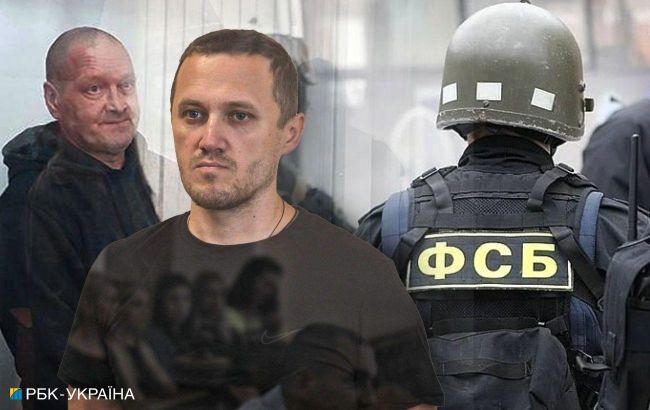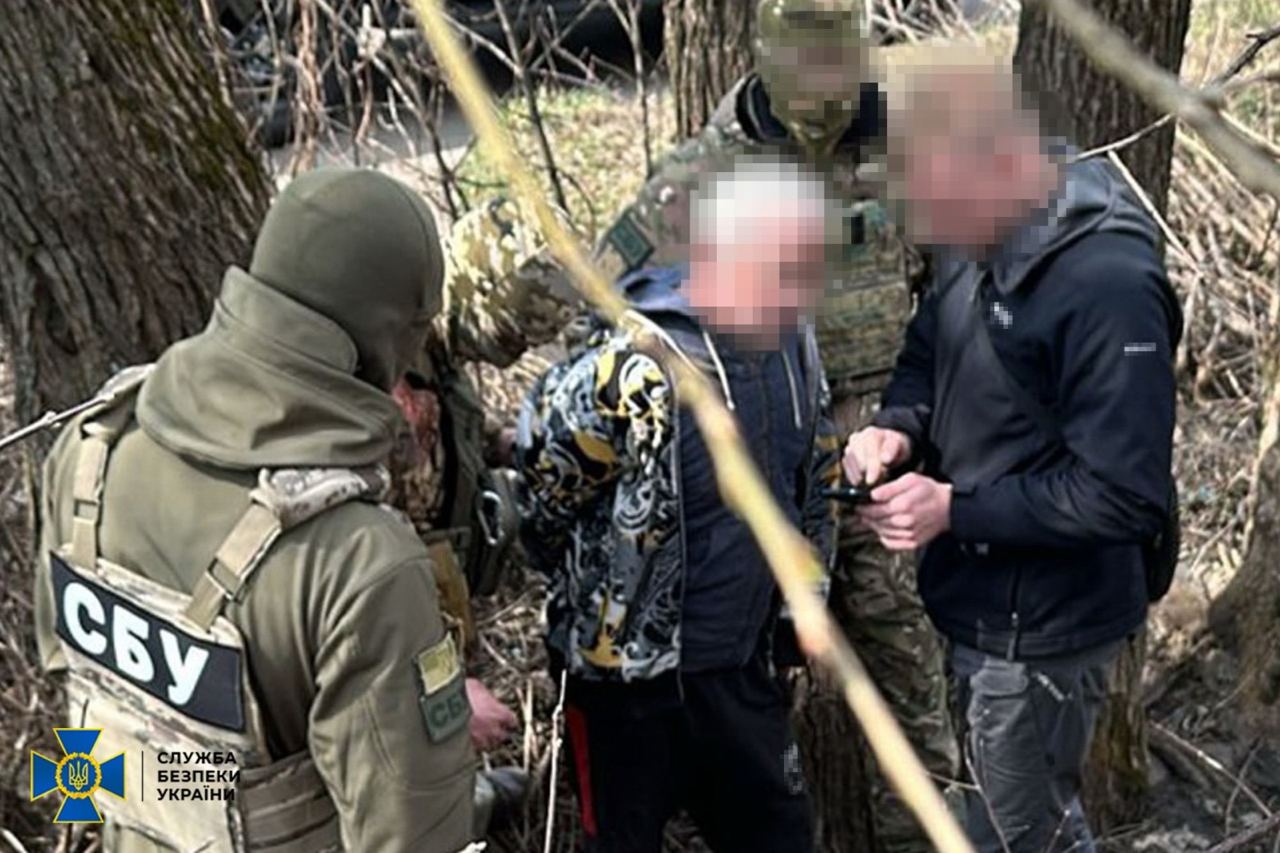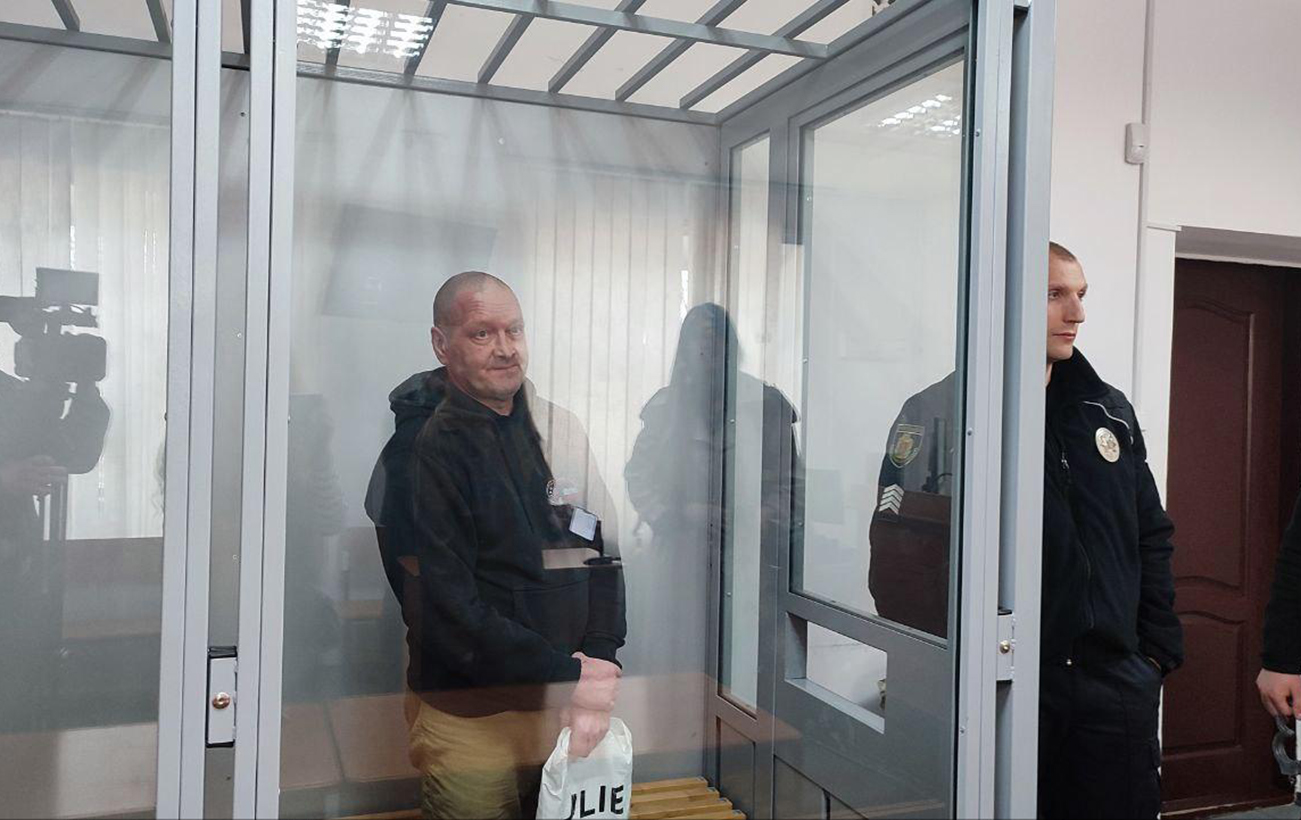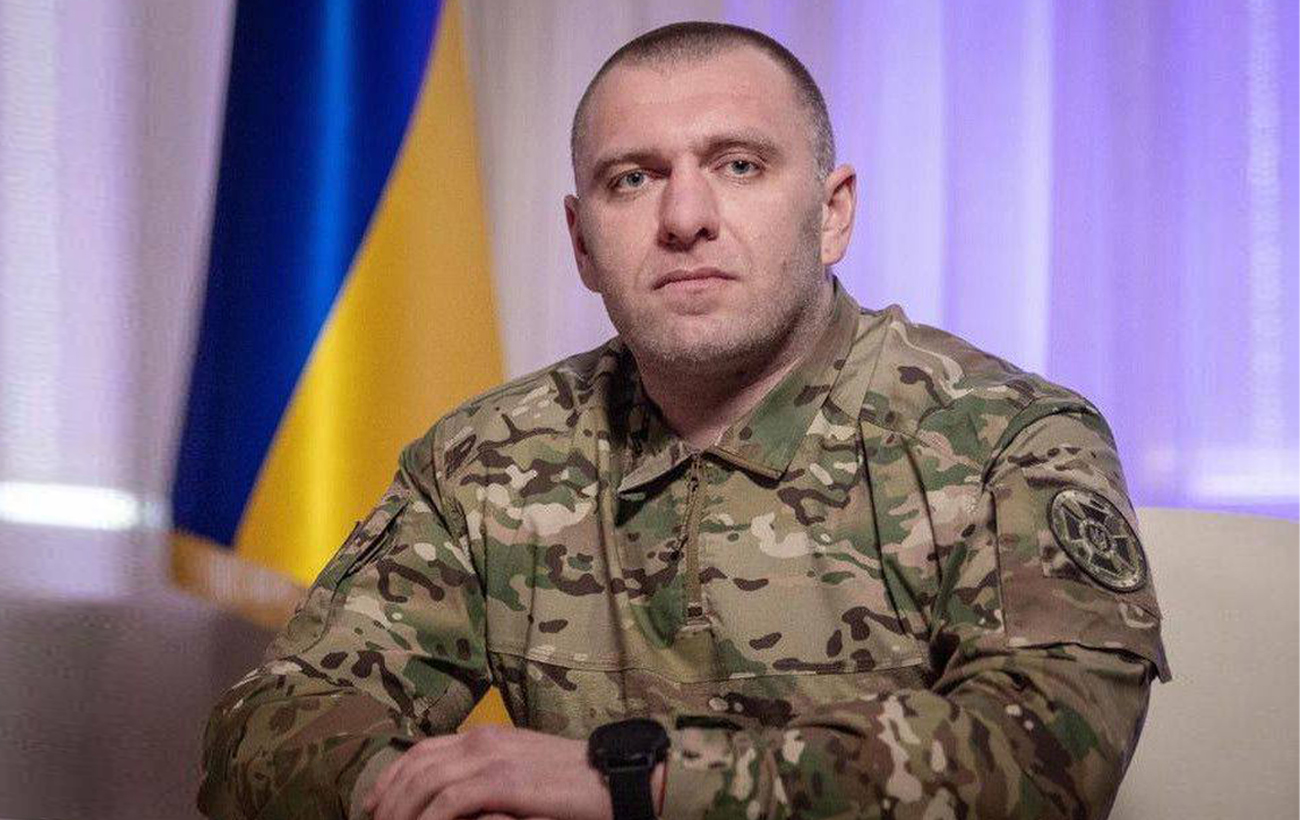State enemies: How FSB recruits agents in Ukraine and what are treason repercussions
 RBC-Ukraine collage
RBC-Ukraine collage
Over the past two years of the war in Ukraine, hundreds of individuals who in one way or another aided the occupiers have been apprehended and incarcerated. Many of them were directly collaborating with Russian intelligence services. Who are these agents, what motivates them, and what consequences await for their treason? These questions are explored in the RBC-Ukraine report below.
The material draws from open sources, comments from RBC-Ukraine interlocutors within the security services, as well as statements from official representatives of the Security Service of Ukraine (SSU).
Content:
Since the onset of full-scale war, SSU operatives have initiated over 2,500 cases against Ukrainians who betrayed their country, and nearly 500 cases against so-called "correctors" who provide information about the Ukrainian Armed Forces to the Russians. Both groups facilitate the tracking of our military movements, send coordinates of military bases and units to Russian handlers, and adjust missile strikes on their own cities. The spectrum of services provided by traitors is extensive. They receive money for their crimes, and if luck isn't on their side, they face prison time.
The motivations of these traitors vary. Some seek financial gain and therefore prefer not to dwell on the moral and ethical aspects of their actions, while others are driven solely by ideological considerations or the desire to secure a place for themselves in the occupying regime. Most often, these criminals are recruited by Russian structures, primarily the FSB (Federal Security Service) and GRU (Russia's Main Intelligence Directorate). Russian intelligence agencies identify them through social media, although occasionally traitors make themselves known.
"Exposing 'correctors' who aid the enemy is one of the key priorities of the SSU. We are systematically working to cleanse such agents from all spheres, because we understand how crucial this work is for our victory," said SSU Chairman Vasyl Maliuk.
Soviet sympathizer
A man woke up to a message from his FSB handler. The task was to go and simply observe one of the military facilities near the city border. He had breakfast, took his phone, and set out. Walking along the fence surrounding the military building, he decided not to settle for just a glance and took several photographs. When the man opened the secret chat with his handler, he heard rustling behind him. "Stop, SSU operation!" It all happened quickly – within a second of the shout, the careless agent was already lying face down in the grass while an SSU officer cuffed him.
The scenario of arrest in the vast majority of cases is the same – criminals are most often caught in the act – thereby providing the evidence for arrest, but yielding no results for the Russians. The same fate befell the former regionalist from Sumy region.
Serhii Kholshchov, 56, was born in the town of Trostianets. Back in the 90s, he served in the ranks of the Soviet army, where he likely absorbed the ideas of the "Russian world" and the USSR. After his service, he returned to Sumy and began building a political career, becoming one of the officials in the local branch of the "Party of Regions," which was quite prominent. Kholshchov was recruited by FSB agents after Ukrainian forces liberated the region from occupiers. Initially, they established contact with him, then explained what was required of him. The man diligently carried out the assigned tasks.

Footage of the arrest of Serhii Kholshchov (photo: SSU website)
Unfortunately, Kholshchov managed to fulfill part of his tasks. Based on his coordinates, the Russians dropped air bombs. If the strike was inaccurate, the traitor personally reported it to his Telegram handler and adjusted the targeting.
"He moved around the Okhtyrka district by public transport, interrogating and scouting military facility locations. He also personally verified the gathered information, took photographs, and shared the geolocation of military objects," said a source within the security forces.
SSU operatives arrested Kholshchov while he was carrying out one of the FSB's tasks – during one of his outings, he intended to pinpoint the exact coordinates of a military object. Kholshchov was accused of state treason, facing life imprisonment.
They dreamed of serving in FSB
On April 5 in Odesa, two Armenians were detained – 29-year-old Gagik and 25-year-old Gor Danelyan. One worked as a kebab cook in a café, the other was a builder. Both men began cooperating with the FSB out of their own ambitions – they both aspired to become agents of the Federal Security Service and thus hoped to prove themselves.
"They dreamed of serving in the FSB, so they not only took photos and marked military objects on maps but also established a public organization for the legalization of foreigners in Ukraine. They planned to use them as their informants," a source from RBC-Ukraine within the security forces said.
The Danelyan brothers made significant efforts to showcase themselves – they photographed military objects not only on the orders of their handlers but also on their own initiative. Traitors marked the coordinates of buildings on Google maps. Afterward, they collected maximum information about each military object – the presence of soldiers, their numbers, the military equipment on-site, movement schedules, and so forth.
The Danelyan brothers cultivated various acquaintances with locals and used them to extract vital information. All this work was done with one goal in mind – to provide the FSB with the necessary coordinates for missile strikes. While the two men monitored the military, SSU operatives monitored them. As a result, all movements of the Russian agents were documented.
The Danelyans were apprehended while conducting follow up reconnaissance. Both face up to 12 years in prison. During interrogations, Gagik and Gor did not deny their guilt but also did not repent. Overall, there are several lines of behavior among FSB and GRU "agents," said SSU spokesperson Artem Dekhtiarenko.
"The behavior of detained by SSU Russian agents depends on the defense strategy they choose. Most confess and cooperate with the investigation to mitigate their punishment. Some claim they were unaware of the consequences of their actions and the extent of the crime. But there are also those who, even in prison, support the 'Russian world,' sincerely hate Ukraine, and desire an exchange to Russia," Dekhtiarenko remarked.
Call sign 'Akela'
49-year-old odd-job worker Vitalii Kuts from Kropyvnytskyi began collaborating with the FSB in May 2023. One day, he sent a message from his phone to a Russian number: "Boss, it's Vitalik, I'm ready to work." Kuts received instructions on "conspiracy techniques and security" and the very next day, he completed his first task – sending messages with work schedules and coordinates of military offices. He also didn't forget himself, attaching his bank card number to the messages.
For the coordinates, photos, videos, adjustments, and targeting, Vitalii Kuts received between 500 and 1300 hryvnias in cryptocurrency. Since the curators were most interested in information about military aviation, Kuts even climbed over the fence of a local aerodrome to take photos and videos of planes. He relayed all the information to a personnel member of the FSB's fifth department located in occupied Crimea.

Vitalii Kuts in court (photo: dostyp.com.ua)
Perhaps Kuts became so engrossed in his "agency" activities that, in addition to one-time passwords, code words, and secret chats, he chose a pseudonym based on his childhood nickname – Akela. Akela was caught in early summer near a secret military unit where he conducted reconnaissance for the FSB.
During the trial, Kuts opted for a denial strategy – he claimed he was framed, found the phone accidentally, took videos of military units and aerodromes as a keepsake, and didn't remember much due to a previous head injury.
Despite Russian intelligence finding Vitalii on social media, where he expressed support for the "Russian world," RBC-Ukraine interlocutors note that calling him ideological would be inaccurate.
"He's a drug addict, repeatedly implicated in criminal cases for drug possession and trafficking. Therefore, his main motivation was money due to his drug addiction," a source within the security services said.
Vitalii Kuts received a 15-year prison sentence. When asked by journalists about being found guilty of state treason, he just replied, "It's not fair."
Troublemakers
Ukrainian security services regularly catch traitors of various social standings and ranks. General worker Vitalii Kuts wanted to earn money, pensioner Serhii Kholshchov had no doubts about the righteousness of the actions of the Russian Soviet army, and the Danelyan brothers apparently played the role of agents. They all provided and adjusted information, receiving up to 1,500 hryvnias for their services.
However, there are also bigger fish – people holding influential positions, having access to important information, state secrets. Such individuals are challenging to buy, and while the "Russian world" may be enticing, it must offer them something more than just a bare concept. Their motivation is status.
Last summer in Odesa, the head of the Mykolaiv regional prosecutor's office, Hennadii Herman, was sentenced to life imprisonment. He didn't photograph military units or movements of equipment; his scope of services was somewhat broader. Herman reported to the Russians about the situation in Mykolaiv and the region, provided them with information about casualties, locations of detained Russian soldiers, leaked passwords of checkpoints, and talked about the results of shelling.

Hennadii Herman (photo: Nikcenter.org)
Herman's activities are linked to some of the most significant attacks on Mykolaiv – on the military unit where Ukrainian soldiers were stationed, and on the regional state administration. These attacks resulted in the deaths and injuries of hundreds of people.
Ideological sympathies are far from the only motivation that drove the official. His main interest was in prospects. Therefore, in exchange for information, Herman demanded a leadership position in Mykolaiv in the event of its occupation. In correspondence with an intermediary, he spoke of having significant influence over local law enforcement, which he could persuade to betray their oaths after the city's capture.
The majority of Russian agents are apprehended preemptively, before they can cause harm. Additionally, often behind one traitor hides an entire network, noted SSU Chairman Vasyl Maliuk in a comment to RBC-Ukraine.
"An indicator of our effectiveness is that just last year, the SSU exposed 47 espionage networks, and since the beginning of this year, another 11. These networks varied in scale and involved different individuals, from where members of parliament operated to those where individual defense representatives were involved. Among other things, these networks were engaged in adjusting Russian shelling in various regions," Maliuk said.
Suspects may be monitored for some time, and they might be fed blatantly false information, as was the case with the Mykolaiv prosecutor. This is not only for gathering evidence but also to reveal the network, if it exists.

Vasyl Maliuk (photo: Facebook of the SSU)
"To collect and analyze information, the SSU uses a variety of methods, starting from monitoring open data, information from our own operational sources, and ending with testimony from exposed informants. We also employ other counterintelligence measures, but we won't disclose them," said Artem Dekhtiarenko.
It's not surprising that even during active full-scale warfare with Russia, Ukraine continues to find ideologues of the "Russian world." Kremlin propaganda is a multi-level complex of actions that operate like layers of a press, compressing layers of disinformation until they literally petrify into a monolith.
Adjusters, informants, and moles see the same things as others – missile strikes, deaths, and the chaos brought by the "Russian world" – but they perceive it differently. Therefore, in a way, it is beneficial for society when they come out and reveal themselves, as they can be isolated. The main thing is that this happens before they can finish what they started.
"Every traitor, informant, or adjuster, corrector must be held accountable for their crimes. And we make sure it's inevitable," added Vasyl Maliuk.

